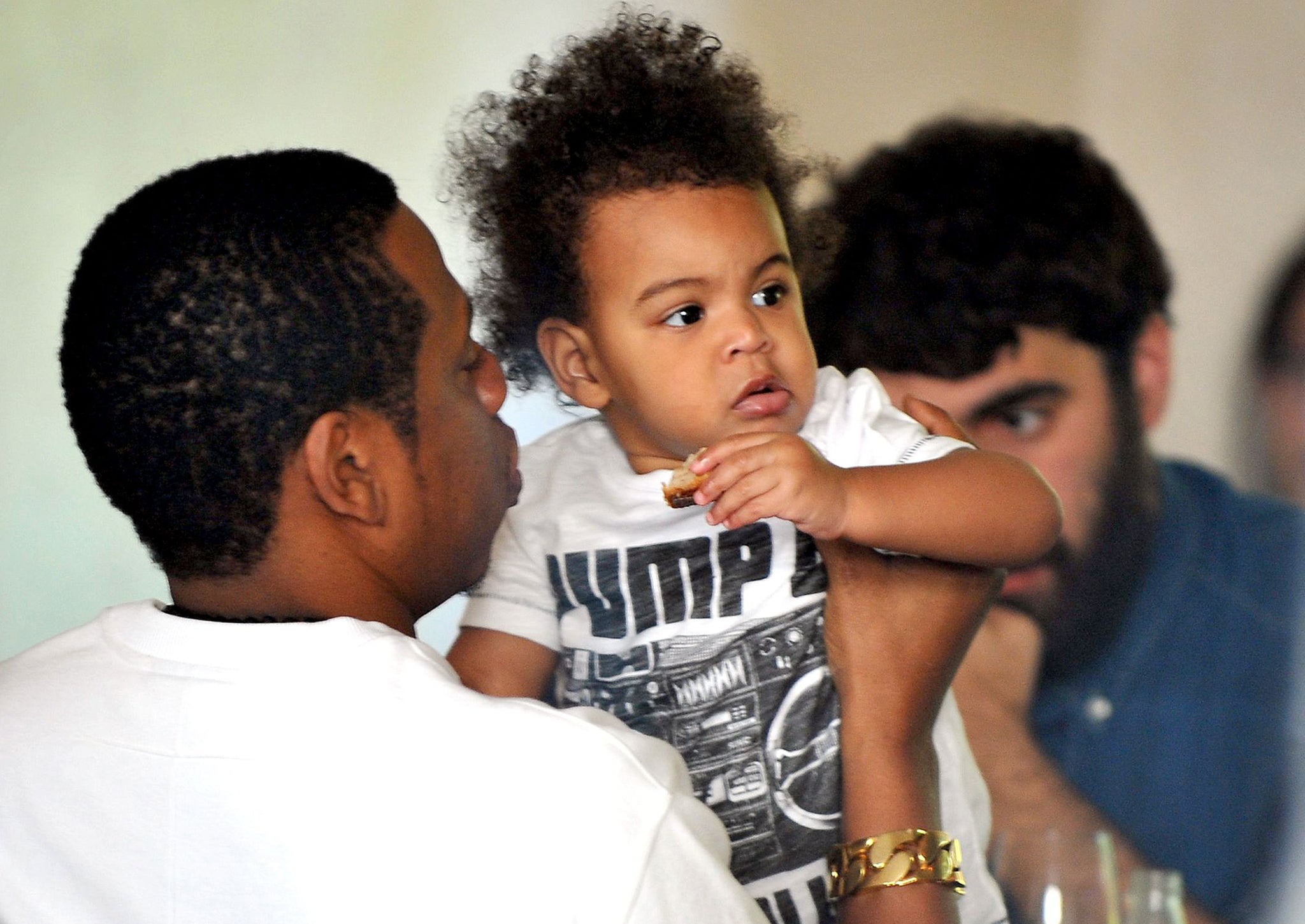Beyoncé, Blue Ivy and Change.org: What's hair got to do with it?
A petition calling for the singer to comb her three-year-old daughter’s hair has caused outrage, and rightly so – here's why

Your support helps us to tell the story
From reproductive rights to climate change to Big Tech, The Independent is on the ground when the story is developing. Whether it's investigating the financials of Elon Musk's pro-Trump PAC or producing our latest documentary, 'The A Word', which shines a light on the American women fighting for reproductive rights, we know how important it is to parse out the facts from the messaging.
At such a critical moment in US history, we need reporters on the ground. Your donation allows us to keep sending journalists to speak to both sides of the story.
The Independent is trusted by Americans across the entire political spectrum. And unlike many other quality news outlets, we choose not to lock Americans out of our reporting and analysis with paywalls. We believe quality journalism should be available to everyone, paid for by those who can afford it.
Your support makes all the difference.On Saturday Brooklynite Jasmine Toliver decided to launch a petition calling on multi-million selling megastar Beyoncé to comb her daughter's hair.
It followed the release of a picture showing the Carter-Knowles contingent trotting off their private jet from the Hamptons with baby Blue looking sleepy in Daddy Z’s arms.
Her “plane hair” caused Toliver to jibe that the three-year-old was “developing matted dreads and lint balls.” So far the petition has over 5,000 supporters. NBD, right? Just another person trash talking on the internet?
Wrong. Though she's called on people to “chill out”, the backlash – from US chat show presenter Wendy Williams, to musician India Arie, suggests this won't be happening anytime soon. Why? Because black hair is a loaded topic.
Historically it’s been tangled with meaning: from the first “respectable” straightened dos of the post-slavery era to Malcolm X’s dyed-orange "conk" to the afros of the 1960’s and modern-day weaves – which Beyoncé herself knows can invite enough unsolicited scrutiny.
Hair is also a feminist issue, or, as perhaps Bey would prefer, a 'womanist' one. Womanism being an alternative definition of female unity created by black women – in response to feeling continually maligned by conventional or 'white' feminism – but that’s a whole other story. Back to hair:
Black hair has routinely been denied the right to grow naturally without some outward statement of self, or black identity politics being attached - it’s what Ghanaian-British art historian Kobena Mercer calls the “burden of representation”.
I'm a fair-haired, white woman with no personal experience of this, and will leave it to Ingrid Banks, a professor of black studies at the University of California, to sum it up better than I can. “For black women, you’re damned if you do, damned if you don’t,’’ she has said. “If you’ve got straight hair, you’re pegged as selling out. If you don’t straighten your hair,” she said, “you’re seen as not practicing appropriate grooming practices.”
If this sounds like a mountain/molehill situation to you, let’s recap. Malia Obama was labeled “ghetto” and unfit to represent the US by the right wing American press when she wore a natural twisted style on a state visit to Rome in 2009.
Even teenage gymnast Gabby Douglas was served a dose of hair hate for her straightened locks and ponytail of extensions alongside side her gold medals at London 2012. Earlier this year, the US army banned cornrows, dreadlocks and twists in favour of “neat”, (read: straightened) styles.
Flying in their face has been the natural hair “movement” which has been gathering pace over the past decade. Thousands of women began “transitioning” - growing out their relaxed ends, or, like Blue’s aunty Solange, chopping them off and re-growing their hair from a “Teeie-Weenie Afro” and declaring themselves “happy to be nappy”.
Many Brits have joined #TeamNatural, but either side of the pond, the language is of practical care and empowerment. In avoiding definitions of race and representation, their uniting message “My hair is just hair” is all the more revolutionary for its apolitical stance.
As Solange herself put it, by growing out her afro, “I never painted myself as a team natural vice-president.” Against this backdrop, such slapdash negativity about a child's hair feels all the more cheap and nasty.
I hope that, in the decade of so from now when Blue is old enough to choose to do whatever she wants with her hair, the petitioning public will have grown up a little. Women have the right to do whatever they want with their hair, especially if this means doing nothing.
I'm sure Blue Ivy's self esteem is “Roc” solid already (sorry) – but not every girl's got Queen Bey’s backing. As many of the legitimate petitions on Change.org attest to, women have enough to deal with already.
And yet, someone's taken to the platform to criticise the appearance of a three-year-old's hair. It’s a move so pathetic that perhaps we should, in the words of one commenter, “Petition for a life for Jasmine Toliver”.
Join our commenting forum
Join thought-provoking conversations, follow other Independent readers and see their replies
Comments